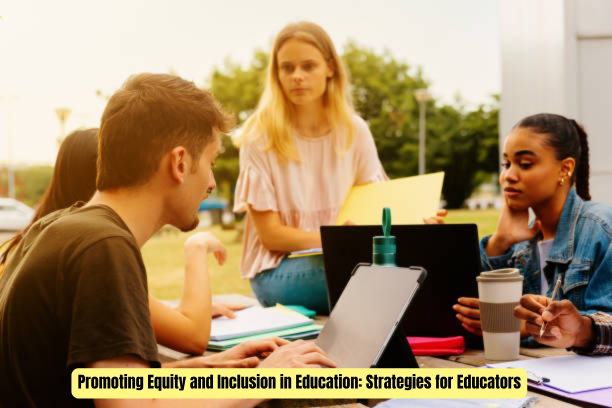Promoting fairness and inclusion in education is more significant than a purpose. It is a duty that educators need to embody to make sure that each student has access to supportive, truthful, and enriching studying surroundings. As school rooms become increasingly numerous, with students from diverse cultures and socioeconomic backgrounds getting to know backgrounds, fostering inclusivity is critical for addressing disparities and empowering all first-year students to succeed.
The Importance of Equity and Inclusion
Equity and inclusion in education are not just buzzwords. They’re foundational ideas that ensure all college students have equal access to knowledge and opportunities regardless of their historical past or ability. Inclusive training leads to higher academic and social effects for students. Recent research has shown that students in inclusive settings often outperform their peers in segregated lecture rooms.
Educators pursuing an eds degree online gain superior know-how in creating inclusive environments that cope with their students’ desires. Educators can assist each scholar in being triumphant by selling range and imparting equitable assistance. This acknowledges and addresses the demanding situations students from extraordinary socioeconomic backgrounds, cultures, and capabilities confront.
Research highlights the essential role of inclusive schooling in fostering supportive mastery of surroundings. When schools prioritise fairness, they enable all college students to reach their full capability. This now not only benefits character students but also contributes to a greater just and equitable society as an entire.
Effective Strategies for Creating an Inclusive Classroom
Creating an inclusive schoolroom calls for intentional practices and a commitment to addressing the diverse needs of all students. Here are some powerful strategies to get started:
Differentiated instruction uses various coaching strategies, consisting of visual aids and generation, to cater to multiple gaining knowledge of styles. Collaborative mastering encourages institutional work and peer-to-peer learning, fostering extra-profound understanding and social competencies. Culturally responsive teaching integrates college students’ cultural backgrounds into the curriculum, making learning extra applicable and growing engagement and motivation.
The Role of Professional Development in Promoting Inclusion
Ongoing training and expert improvement is vital for educators to stay informed about the best practices in inclusive education. Workshops, online courses, and conferences can offer treasured insights and strategies for fostering inclusive surroundings. Educators with specialized schooling can adapt their teaching techniques to aid various beginners higher.
Benefits of Inclusive Educational Practices
Inclusive educational practices offer several benefits, including advanced academic consequences, improved social skills, and a more incredible feeling of belonging for all college students. Research has shown that inclusive school rooms are not only the most effective way to attract students with disabilities but also create pleasing, mastering surroundings for all. Inclusive education fosters a culture of recognition and admiration wherein all college students feel valued and supported.
Research from the National Centre for Inclusive Education highlights that inclusive classrooms no longer benefit college students with disabilities but create a more prosperous learning environment for all. This tradition of popularity fosters appreciation and empathy, crucial traits for future citizens in numerous international.
Also Read:

